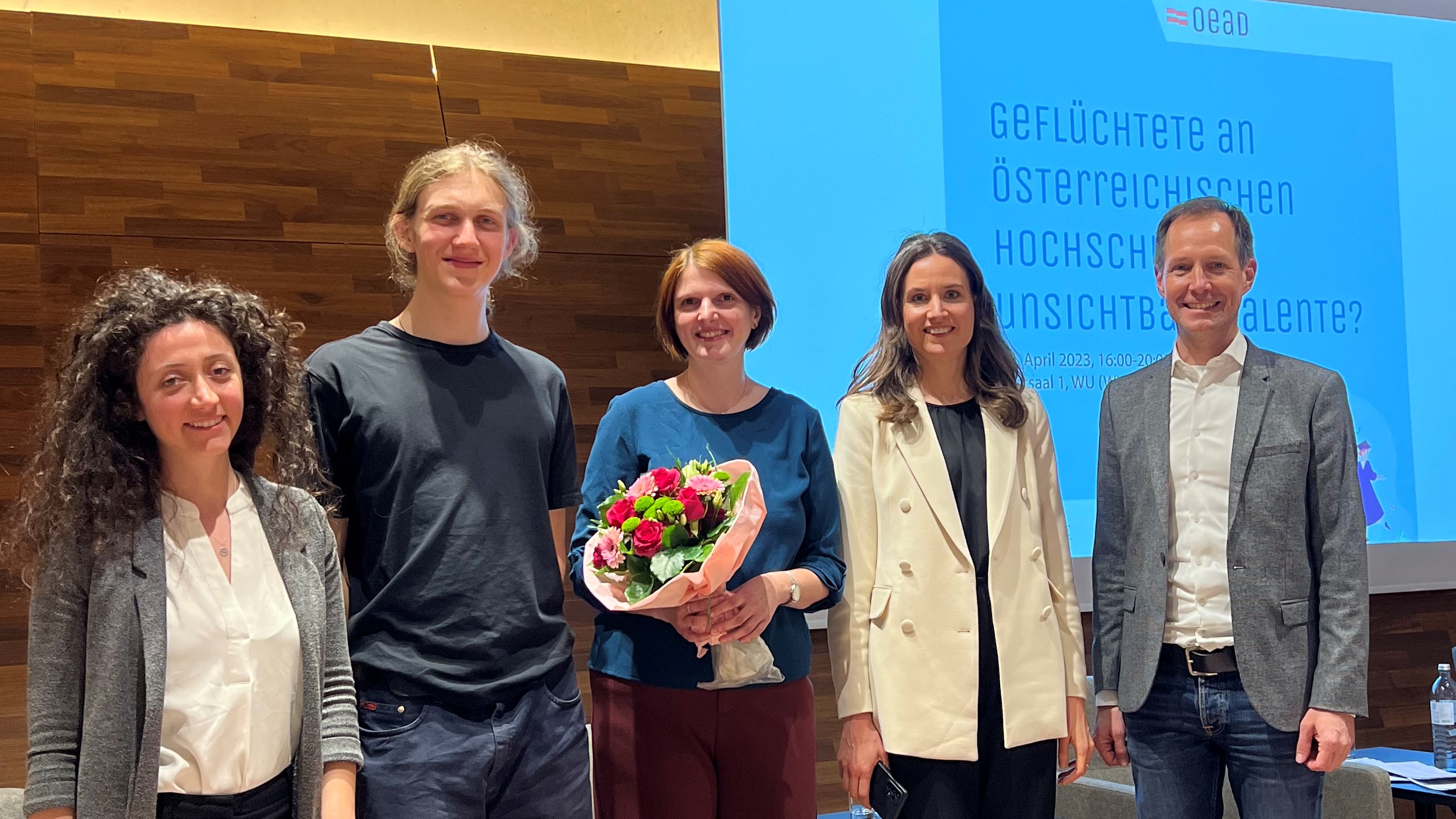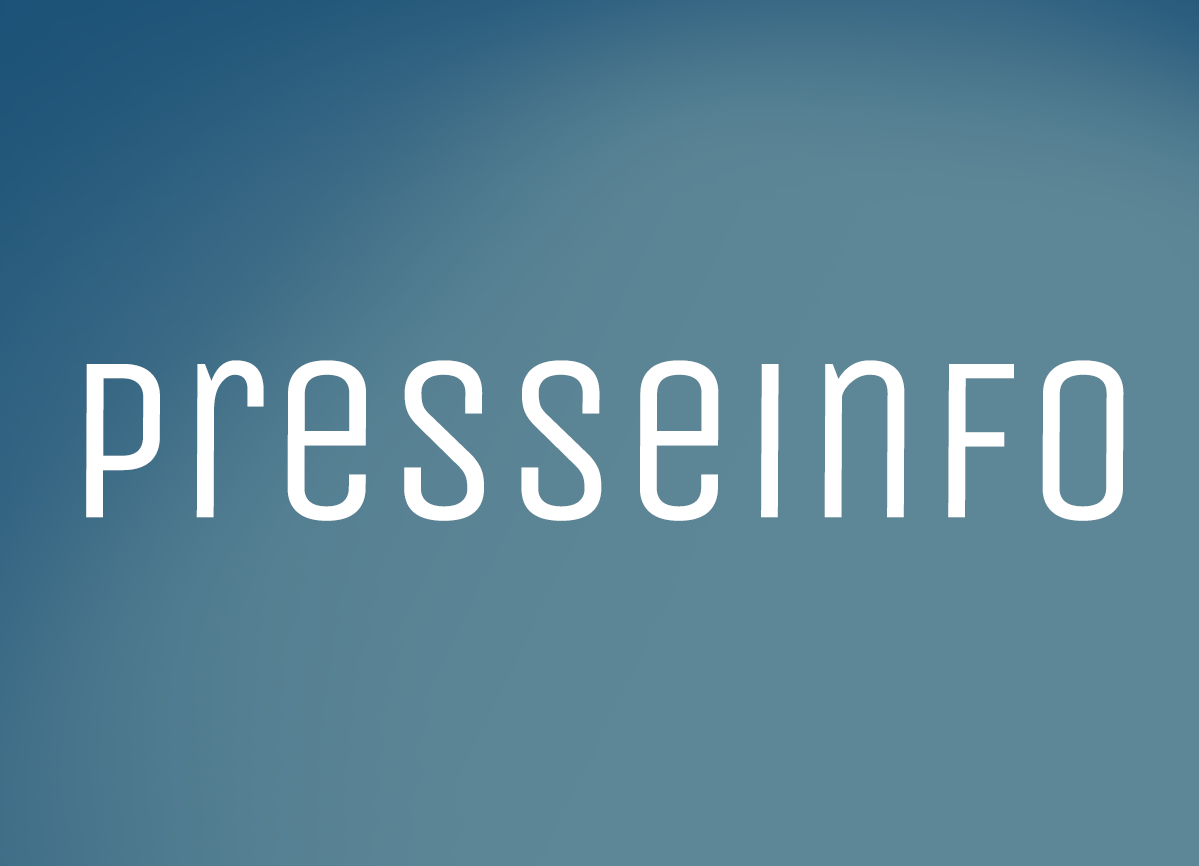OeAD and WU Vienna: Refugees at Austrian higher education institutions – Invisible Talents?
What added value do refugee students and academics represent for higher education institutions? What do they contribute and how does society benefit from the integration of highly qualified people seeking protection? Austria’s education and internationalisation agency OeAD organised an exciting discussion on this topic together with the Vienna University of Economics and Business on 12 April 2023.
In cooperation with the Vienna University of Economics and Business the OeAD invited interested people to the event “Refugees at Austrian higher education institutions”. The event succeeded in highlighting the often invisible achievements of students with a refugee background at higher education institutions. The aim was to counter the often deficient discourse about refugees with a positive narrative and to highlight opportunities that arise through participation and inclusion of refugees.
The OeAD’s managing director Jakob Calice emphasised that the OeAD, in cooperation with the higher education institutions, supports refugees in the best possible way with initiatives such as “oead4refugees” or within the framework of our Ukraine advisory service. To facilitate the integration of refugee researchers into the European labour market the OeAD, in cooperation with EU partners, participated in the creation of a guide to facilitate the labour market integration of refugee researchers in the European Union. According to Calice the event illustrates that supporting refugees represents a sustainable win-win situation both for them and for the higher education institutions. This also applies to integration into the Austrian labour market, especially in view of the growing labour shortage.
Guide: https://www.euraxess.at/austria/guide-labour-market-integration-refugee-researchers
oead4refugees: http://studyinaustria.at/oead4refugees
The event also provided an opportunity to exchange ideas within the higher education institutions and to explore synergies to support refugees at higher education institutions.
In keynote speeches representatives of Austrian higher education institutions (Johann Bacher, Sonja Falkner-Matzinger, JKU Linz, and Birgit Hernády, FH JOANNEUM University of Applied Sciences) addressed the support measures for refugees initiated at their higher education institutions and emphasised that support is possible despite tight budgetary and administrative framework conditions.
The Rector of the Vienna University of Economics and Business (WU), Edeltraud Hanappi-Egger, pointed out the great social responsibility of public universities, especially with regard to dealing with refugees. This is why the WU makes important contributions not only through research but also through training opportunities for refugees. As early as 2015 internships were made possible, which many refugees have since used to continue their previous education and have thus been able to gain a foothold in the labour market more quickly. Refugee students are also supported. In the end every organisation benefits from social commitment and diversity.
Promoting inclusion to exploit potential
On the panel two students with a refugee background – Haia Haddad, student of the bachelor's programme in Economics and Social Sciences (WU), and Kyrylo Meliushko, student of the bachelor's programme in Artificial Intelligence (JKU) – discussed the situation of refugees at Austrian higher education institutions with the refugee researcher Judith Kohlenberger (Vienna University of Economics and Business) and the head of UNHCR Austria, Christoph Pinter. The students described the challenges and barriers they had to overcome in the course of their studies but also clearly showed the measures that support them in their studies.
Christoph Pinter addressed the global situation of refugees. Only six percent of all refugees have access to higher education. UNHCR and its partners are committed to the 15-by-30 target to ensure that 15 per cent of young refugees have access to higher education by 2030. On the basis of two studies the refugee researcher Judith Kohlenberger showed that many refugees not only have completed compulsory education but also higher education but that without support measures and the removal of barriers this potential could not be exploited or would be lost. All discussants agreed that a holistic approach that includes all levelsis needed. To strengthen the sustainable inclusion of refugees at higher education institutions and also in our society e.g. financial support and mentoring programmes are needed and not least the often-mentioned welcoming culture.
The event organised by the OeAD and WU was also used by different organisations in the field of integration, flight and participation to exchange ideas. More than 14 organisations, including UNHCR, CarBiz, FH JOANNEUM, JKU Linz, ÖFSE, Volkshilfe Vienna and the Counselling Centre for Migrants took part.


